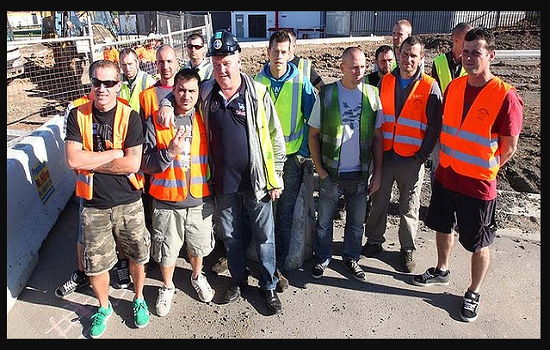Canada Permanent Residency: Apply for Canada Permanent Residence
Applying for permanent residence in Canada is a process of becoming a permanent resident in the country.
Foreign nationals holding permanent residence in Canada can live and work in all provinces of Canada. It is a kind of permanent WHV (Working Holiday Visa), without the usual 12 or 24 month limit.
Residents have the same rights as Canadian citizens, with the exception of the right to vote and restrictions related to certain jobs involving Canadian national security.
After a few years, permanent residents in Canada can acquire Canadian citizenship.
Rights and Duties as a Permanent Resident of Canada
Rights
- You have access to most of the social benefits that citizens receive: social security, health care coverage, pension, etc.
- You can live, work or study in any of the cities in Canada.
- You can start the procedures to apply for Canadian citizenship.
- You are protected under Canadian law and the Canadian Charter of Rights and Freedoms.
Duties
- You must pay taxes.
- You are required to follow all Canadian laws at the federal, provincial and municipal levels.
- To maintain your permanent resident status, you must have been in Canada for at least 730 days (they do not need to be continuous) during the last five years.
Ways to Obtain Permanent Residence in Canada
There is not just one way to obtain permanent residence. There are VERY many ways to immigrate to Canada permanently.
They depend largely on the province or territory to which you wish to immigrate. In this article, we will quickly present each of these ways to immigrate below;
- Express Entry
- Provincial nominees
- Atlantic Immigration Pilot
- Start-up Visa
- Rural and Northern Immigration Pilot
- Refugees
- Family sponsorship
- Quebec-selected skilled workers
- Caregivers
- Self-employed
- Agri-Food Pilot
But we are going to explain 3 of the most common alternative (and a bonus that will interest you, especially if you want to come as a student and work in Canada).
- Express Entry
Express Entry is an online system created by the government in 2015, through which the IRCC manages permanent residency applications for qualified workers.
Within the framework of this program, you can immigrate to Canada under 3 modalities:
- Federal Skilled Worker Program
- Federal Skilled Trades Program
- The Canadian Experience Program
In general, when you submit your profile through the Express Entry system, you will enter a pool of candidates where you will be qualified based on your studies, your command of the language, your work experience and other factors.
If you are elected, you will receive an invitation from the government to apply for your permanent residence.
- Provincial Nominee Program (PNP)
This permanent residency program in Canada is aimed at workers who have the skills, education and work experience to contribute to the economy of a specific province or territory.
Keep in mind that to apply, each of the 12 provinces has its own needs and wants to attract different profiles.
Thus, the requirements may vary depending on your profile and provincial regulations.
- Family Sponsorship
If you have a domestic partner or your spouse who are permanently in Canada, or if you are under 22 years old and your parents live in Canada, they can sponsor you to immigrate to Canada.
On the other hand, if you are the one who has permanent residence, you can invite your dependent children, partner or spouse, parents or grandparents to live with you.
This is one of the easiest alternatives to come to Canada. However, those sponsored still have to meet some requirements to obtain permits.
Work Visa or Study Permit
If you have come to study in Canada and now you want to extend your stay for longer, there are two very interesting alternatives.
Firstly, if it turns out that if you’ve worked in Canada for at least 12 months full-time (or 24 months part-time), you can apply for a permanent residence permit through the Express Entry and its Canadian Experience Program.
Secondly, if you graduate from a Canadian college or university, you can apply for a Post-Graduation Work Permit that allows you to stay working in Canada for the time equivalent to the duration of your study program.
Thus, if you accumulate 12 months working full time, apply for permanent residence. Keep in mind that to work in Canada as a student, there are some requirements and that you will not be able to do so if you only enroll in English courses.
Requirements to Process Permanent Residence in Canada
Regardless of the alternative you choose to process your permanent residence in Canada, the government establishes minimum requirements to begin with the application. Some of them are as shown below;
- You must have a certificate of your studies in technical or professional education, depending on the program for which you apply.
- You must have certified work experience of at least 2 years (this experience cannot have occurred in a period greater than the last 5 years).
- Your age. You should preferably be between 20 and 35 years old.
- Your adaptability. This means that you add more points if you have had a previous work or study experience in the country.
- Have enough money to finance your stay in Canada, at least for the first few months while you get a job.
- If you have a current job offer with a Canadian employer, all the better.
- The mastery of English or French is essential. In addition, you must be certified by international exams such as IELTS, TOEFL or TEF.
- If you feel like you can still improve, take a look at these English courses in Canada! They can be a great starting point for your adventure.
Additional aspects to keep in mind;
Now, in addition to the requirements, there are some factors that can make you inadmissible to apply for permanent residence. Please read carefully!
- Have a criminal record.
- Being considered a threat to the security of Canada.
- Not having a valid passport or document.
- Not having enough money to support you and your family (if applicable) while in Canada.
Please note that all applications are evaluated using the same criteria and the IRCC considers them on a case-by-case basis, so the process can take months. Therefore, we recommend that you start these procedures with enough time.
Conclusion
If you have been hoping to become a Canadian permanent resident, then I believe this is the right time to take your first step.
You can share this article with your colleagues who might also be interested in learning about the Canada permanent residence. Thanks.









